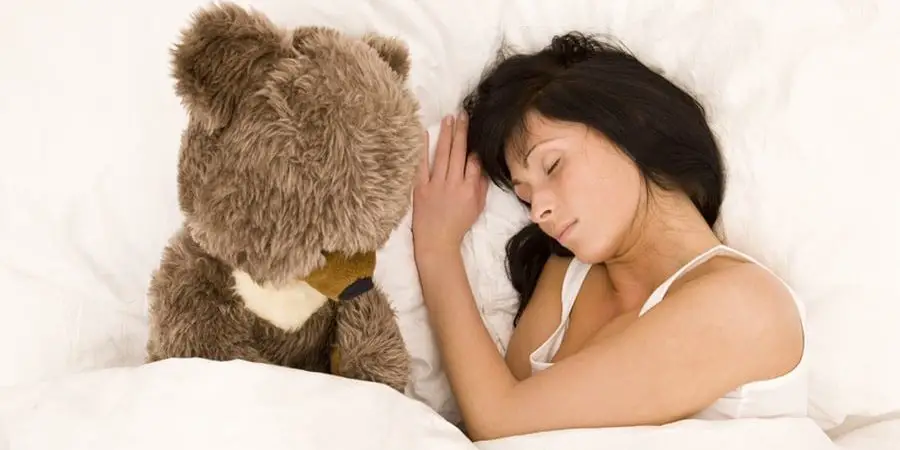
Medically Reviewed by
Nana Sebiskveradze – Doctor of Medicine (M.D.)
July 16, 2020
“Sleep well” – this is a common and widespread “wish” in the world, regardless of nationality or age. However, is it easy to “realize” this in practice, especially every night? Many things can affect our sleep (or in fact phases of the sleeping process). But besides such an alarming judgment, fortunately, many solutions can be found too.
So how can you sleep well every night? There are many solutions to help anybody to sleep healthily, but as every organism is reacting in it’s own way, the same “way of solving the problem” does not work for everyone. Nevertheless, trying various tips related to your sleeping environment, eating and drinking habits, and using electronic devices in a way that does not interfere with your sleep, may help you find the “formula” which will work better for you.
The following tips are based on real experience. Some of them I have found to work well for me, while some of these tips have worked well for others. It’s crucial to realize that none of these tips is a guarantee – it might work with you, but this applies to everyone with sleep- disturbances, not only you. So everyone with such problems can check if any of them would be helpful.
Here are the 49 tips that can help you sleep well every night:
- Set a Sleep Routine
It is almost impossible to ignore this step if you really want to sleep well every night. The everyday irregularity of daily routine, first of all, disorganizes your circadian rhythm (“biological clock”) and sleeping well becomes not only difficult but something “far from reality”.
So it would be ideal to try to follow the same periodicity every night, and go to sleep at the same time. Also if possible, keep the difference in your sleep cycle within bounds of “on weeknights and weekends to no more than one hour.”[1]
Maintaining the same behavior every night will set up your circadian rhythm and your organism becomes biologically tuned to your sleep schedule. Habitual sleep works as a contributor to a healthy dream process, and you will wake up fresh every morning.
- Optimize Your Sleeping Environment
In a randomized controlled trial, which focused on the effect of the bedroom environment on women, about half of the participants reported better sleep quality when light and noise sources were blocked.[2]
You should make your sleeping environment ideal for sleep so that you can sleep calmly every night. It’s not only about the lights or noises. For instance, you should make sure that it is not too cold and not too hot in your bedroom.
Comfortable bed, mattress, and pillow, in addition to lack of light, quiet situation, and avoidance of other confusions – all of these will contribute to your healthy sleep.
- Don’t Bring Your Mobile Phone (or Anything Else) in Your Bed
If there are extra devices in your bed that you tend to use before going to sleep, it will definitely prevent you from falling asleep on time. Furthermore, if you are stuck scrolling on your phone, you might not realize the passing of time, and eventually, you will notice that the bedtime has passed hours ago.
So don’t go to bed with[3] your phone. If possible, leave it further away from your bed, and you will sleep better.
- Block the Blue Light

This tip is related to the previous point of view. Blue light is one of the biggest enemies of sleep. If you have a habit of using your cell phone or computer or watching TV late at night, any of these might inhibit your ability to fall asleep.
So a couple of hours before going to bed, you should:
- Turn off all bright lights
- Stop watching TV
- Stop using your computer
- Stop using a mobile phone
Nowadays, many of us can’t stop using such devices. If you feel the same, here are some alternatives for you:
- Use special glasses that block blue light[4].
- Get a screen dimmer app
It might be ideal to take into account the second advice and start to use the screen dimmer app as soon as the sun sets. That will help you to prepare to have a good sleep duration with the most important “deep sleep phases”.
If you are looking for a good screen dimmer app, you can check out the options I found: You can see if any of these will work for you[5].
- Go to Sleep at Same Time Every Night
If you want to sleep well every night, it would also be best to always go to sleep at the same time. That way, you can keep up with a good sleep schedule and wake up more naturally in the morning.
Also, you probably will find out how much better you feel during the day when you are following a stable sleeping schedule.
It can be beneficial for your long-term sleep quality[6].
- Set the Alarm to Remind You When It Is Bedtime

You can use your alarm clock or alarm app not only to wake you up in the morning, but also to remind you when it is time to go to sleep. It may be beneficial for you, especially if you are losing your “sense of time” easily. In the evening, you can easily be “absorbed” in doing other things and might totally forget your sleeping time without the reminder.
It will be effortless to set such an alarm to remind you automatically at the same time every day if you use an alarm app on your phone.
- Wake Up at the Same Time Every Morning
It is more natural to wake up at the same time every morning, if you go to sleep at the same time every evening. Correspondingly, if you have a habit of waking up at the same time every morning, it will be more comfortable to go to sleep the same time at night. Moreover, as your sleep routine is already “programmed” in your memory, your biological clock will become set in a manner – you will feel sleepy at the same time of the 24-hour cycle.
In addition, keeping up with the same wake-up routine on the weekends will help you wake up early on the weekdays.
An ideal situation would be if you didn’t need an alarm clock to wake you up, but for most people, it’s not possible.
- Stop Smoking
Anything to add here? Well, you can read more here about how bad smoking is for your sleep and health in general,[7] if you need any motivation to stop smoking.
- Don’t Drink (too much) Alcohol
Some may claim that it is good to drink a bit of alcohol before bed, because it helps you fall asleep. However, there are also conflicting claims.
During the years many trials have been conducted and published dedicated to the “sleep-alcohol” relation. One of such studies, for example, was performed in Australia, Sydney (Department of Medicine, University of Sydney/Department of Thoracic Medicine, Royal Prince Alfred Hospital) and was named as Alcohol, sleep apnea and snoring[8] . As a result, the study indicated that alcohol had a negative impact on sleep.
Consider carefully, how much and how often, if at all, you should consume alcohol.
- Make Sure That Your Bedroom Temperature Is Ideal
An ideal bedroom temperature may help you to sleep better for the whole night. Many sources say that around 70°F (around 21°C) would be a comfortable temperature for many people.
One multicentral, multinational investigation, performed by researchers from the USA and France, found that the bedroom temperature can affect the sleep quality more than a noisy environment[9].
It is also good to acknowledge that your bedroom temperature may change during the night. Therefore, using a heater or a cooler with a thermostat could help keep the temperature of the bedroom steady.
- Make Sure That Your Bedroom Is Dark
To achieve this, you may want to get good quality curtains that block all the light from outside. Furthermore, if there are disturbing light sources that you can’t block, such as blinking led lights in your bedroom, you might want to use a sleep mask to keep those lights from bothering your sleep.
- Decide When You Should Eat
It might be the case that eating, especially a large meal, late at night can impact your sleep negatively, but on the other hand, eating something in the evening might also help you to fall asleep.
Therefore, you should find out what works best for you. Following the advice, try to figure out what time and what kind of a meal is best for you in the evening.
Here you can find good advice related to the kinds of food that may be beneficial to eat[10].
- Decide What You Should Eat
In addition to the previous point, everything you eat during the day might affect your night-time sleep. The food you eat during the last few hours before bedtime significantly affects sleep. Therefore, it is essential to decide what you eat and when to eat.
Quite enough has been written about not eating large meals at night[11], because it may disrupt your sleep. Also, avoiding refined carbs and sugar might improve your sleep[12].
For many people, a light snack before bedtime might help avoid feeling hungry and contribute to falling asleep faster. A light snack (as indicated below) could be the option of choice:
- Yogurt
- Banana
- Sandwich
- Decide When You Should Drink
Drinking a lot of water is usually considered a good habit. But are there any problems with water consumed late in the evening, and can it affect your sleep? If you drink too much just before bedtime, it might cause problems as you might need to wake up during the night to go to the bathroom. Try to find a good balance between keeping yourself hydrated enough and avoiding unnecessary bathroom trips during the night.
- Decide What You Should Drink
Water is always a good option. How about other drinks? You need to consider how any drink will impact your sleep, as well as your health in general. While drinking caffeinated drinks in the evening is usually not a good idea, drinking juice or other sweet drinks might be a good option for some people, but not good for everyone. You should try to find out what is best for you!
- Take a Relaxing Shower

What could be more relaxing than a warm shower in the evening? Whether you agree with this claim or not, you should give it a try and see if it helps with falling asleep.
Some studies have been conducted to find the effect of getting a shower before bed, and they point out that taking a shower can really improve sleep quality and help fall asleep rapidly.
As an illustration, one Randomized Controlled Trial pointed out that “a warm shower performed before lights out may offer a practical strategy to promote thermoregulatory changes that may advance sleep onset latency[13].”
- Take a Relaxing Bath
If you have a bathtub, a bath can help you sleep better.
In one clinical trial, where people took a warm bath before sleep enhances the quality of sleep. It has been reported “good sleep” or “quickness of falling asleep ”[14]
So clearly warm water can make you relaxed and help you sleep better.
- Do Exercises on the Right Time – Not Exactly Before Bed
This is one of the most recommended ways to improve your sleep.
There are also many studies on this topic. For instance, one clinical trial showed that doing exercises helped people fall asleep 55% faster[15].
It is also generally known that doing exercises too late in the evening may have a negative impact on your sleep. So, as a general recommendation, the specialists advise us not to do any intensive and energetic exercises during the last 3 hours before bedtime. However, we all have to take in consideration that the effifacy of the above mentioned suggestion naturally depends on the individual.
So decide what is the best time for you to exercise.
- Learn How to Relax Your Body Before Bedtime
After a stressful day, many people will still feel stressed when it is time to go to sleep.
Therefore, to relax your body, you might want to dress warmly and do a little light stretching.
You may do this by following these directions of progressive muscle relaxation[16].
- Learn How to Relax Your Mind Before Bed
After a stressful day, your mind might be filled with many “unnecessary thoughts”, which will probably make it more difficult to fall asleep. Therefore, for throwing out all stress-inducing thoughts from your memory, you might want to establish some kind of a routine and relax your mind for sleeping well.
For instance, some people want to do visualizing exercises, read a book, or listen to some relaxing music.
If you notice that your problem is related to worrying too much, you should check out advice about how you can stop worrying[17].
- Avoid Consuming Caffeine Too Late
For many people, even a little caffeine consumed too late in the daytime, might be kept in blood up to the night.
Therefore, if you know – you are sensitive to caffeine, avoid consuming such stimulants at least 6 hours before bedtime[18].
If you feel that caffeine may be a problem for you, you can check out these helpful tips related to sleeping after caffeine.
- Find Out Which Products have Hidden Caffeine
If you are particularly sensitive to caffeine, this tip might be meaningful to help you sleep. If you consume any food products containing caffeine[19] late in the evening, it might hinder you from falling asleep. So it can be prudent to check!
- Get Natural Light During The Daytime
You need natural light during the daytime[20] to sleep well at night. Actually, it would be best to have exposure to sunlight in the morning to get sleep at night[21].
So if possible, go out soon after the sun rises and try to be outside much as possible during the daytime. If you can’t go out, open the curtains and try to stay close to the windows.
If you can’t get enough natural light for any reason, you might want to consider getting a light therapy box, which can help you to get some light.
- If You Wake Up in the Middle of the Night, Learn How to Fall Asleep Again
You probably feel very frustrated if you ever wake up in the middle of the night, when you would surely want to be asleep. Furthermore, if you can’t fall asleep soon again, it makes you feel even more frustrated!
So what can you do?
Here are a few basic tips you might want to try[22]:
- Try to relax, in order to fall asleep easier
- Get out of bed if you are still awake after half an hour has passed
- If you feel anxious, write down your worries or upcoming tasks that you need to remember, so you don’t have to keep thinking about them
- Read a book, but if possible, don’t use electronic screens
- Find Out What Your Natural Sleep-Wake Cycle Is
Everyone’s sleep-wake cycle is somewhat unique, so try to find out what your natural rhythm is[23]. It might not always be possible to follow your natural circadian rhythm, but if possible, you should try to sleep as much as you need, and set your bedtime and wake up time as close to your natural biological sleep cycle as possible.
When you understand what your biological sleep-wake cycle is and what your necessary sleep duration is, do all you can to follow it. Try:
- Go to sleep every night at the same time (if possible, at a time that is natural for you)
- Get up every morning at the same time
- Observe if naps are good for you or not
- Don’t sleep in, but follow your schedule consistently
- Determine how food affects your sleep-wake cycle
- Observe If You Have Any Sleep Disorder
Any sleep problem may be an indicator of a sleep disorder. If you have any doubts regarding your sleeping, find out what the reason behind your problems might be[24].
For instance, you can ask your sleeping partner if they have found anything unusual about your sleeping. Or if you feel that your sleeping is not normal in some way, you should take action to find out what is all about. You might have a sleep disorder, and there might be treatments available. Therefore:
- Ask your spouse
- Do research
- Visit your doctor
- Decide If You Should Take Naps
For some people, taking a nap during the day is a good idea. For others, a nap can disrupt their sleep in the night[25]. So do research and decide if you should take naps during the day, or if it is better to stick to only sleeping during the night.
For many people, taking short (30 minutes or less) naps during the day[26] is a good idea.
Some people, however, might get even sleepier after taking naps during the day. It is decisive to remember: what works for one person, might not necessarily work for another!
- Get a New Comfortable Mattress
If you feel that it is hard to get sleep on your current mattress[27], it might be the time to buy a new one.
Some sources recommend changing the mattress every seven years and all your bedding at least every 5 – 8 years.
The quality of your bed can tremendously affect your quality of sleep[28].
- Get a New Comfortable Pillow
The quality of your pillow also has a huge effect on your sleep. Finding a new pillow is usually quite a simple process, if you know what level of firmness works best for you.
If your current pillow is not comfortable enough, you might want to do a little research and get a new pillow. For instance, I collected information on some of the best hotel pillows, and here is a list of 35 hotel pillows with their price info and link to online shops.
- Get a New Comfortable Bed Cover
A bed cover that’s too thin or too thick might interrupt your night’s sleep, so it is important to select the right kind of a bed cover, in order to sleep well for the whole night.
For instance, if your cover is too thick, you may get too warm during the night, and you might wake up feeling too hot and sweating.
Similarly, if your cover is too thin, you might get too cold during the night when the temperature drops.
It might also be practical to have a thinner cover in the summer and a thicker one in the winter, if you live in an area where the temperature varies a lot between the different seasons.
- Keep a Sleep Diary

Keeping a sleep diary can help you understand what kind of sleeping problems you might have. For instance, you can write down any issues related to sleeping for one month, and then consider what actions you may need to take.
Keeping a diary of the time you go to bed, when you fall asleep, how many times you wake up at night, and, when you wake up in the morning. Records of such information can be useful facts if you are going to visit a doctor. You might also want to write down what you ate before bedtime and what exercises you did in the evening.
- Do Your Work During the Daytime
If you work from home, or if you need to do some of your work at home, try not to work late at night. It is undoubtedly a big factor that can make it hard to fall asleep, especially if you have a stressful work task to do late in the evening.
It is better to leave the more relaxing things for the evening, and try to do any stressful or work-related tasks during the day, if possible.
- Calculate How Much Sleep You Need
If you simply write down the time when you fall asleep and wake up during one week, you can calculate the average duration of your sleep each night.
It would be especially helpful to do this when you are having a vacation, and you don’t have to set an alarm in the morning. Following this advice can help you find out how long you would sleep naturally. With this information, you can investigate at what time you should go to sleep each night when the working routine begins.
- Decide What Kind of Clothes, If Any, Are Best for You To Wear in Bed
Well, this may sound like a little thing, but sometimes it can have a big effect. So, should you wear pajamas or just underwear, or is it best for you to sleep without any clothes?
Probably the most common clothes to wear in bed are pajamas. Even then, you may want to consider what kind of pajamas is best for you. What color, what material and what fit would be best for you.
No matter what you choose, consider what feels comfortable for you, while keeping your temperature pleasant.
- Turn Your Clock to the Other Direction So That You Won’t See It
When you go to sleep at night, it might be best to turn your alarm clock around so that you won’t see what the time is. Avoid checking the time on your phone, either. The reason for this is that if you can’t fall asleep as soon as you would want to, you might be tempted to check the time to see how much time you have wasted. If you start looking at the time at night, it may cause unnecessary anxiety and delay the process of falling asleep[29].
The same can be said when you wake up at night and cannot immediately fall asleep. Constantly looking at the clock and noticing that it is too late, can completely disrupt your effort to fall asleep again.
- Listen to Sounds That May Help You Fall Asleep
Sometimes you may need some external stimulation to fall asleep. If you feel that listening to some relaxing sounds might help you to fall asleep, you should try it.
I have done some research on different types of relaxing sounds, and you can find the collection of 66 weird and best sounds that may make you fall asleep here.
- Listen to Music That May Help You Fall Asleep
If you don’t like the idea of listening to sounds, you might want to listen to some relaxing music instead. Think about what kind of music would be best in your case. Just keep it relaxing and not too upbeat!
- Dim Your Lights at the Right Time
As mentioned, blue light is bad for you just before bedtime. Therefore, you should dim any bright lights at least a couple of hours before going to bed[30].
- Try Different Sets of Pillows
If you feel that your current pillow is not good enough, you can try to add one extra pillow under your head. This might work especially well, if you tend to sleep on your side. If that won’t help you, you might want to try to use a different kind of pillow altogether.
- Don’t Lie in Bed When You are Not Going to Sleep
You may have seen this advice many times before, but it is worth mentioning again. It is actually true for many people, that you should not lie in your bed during the daytime, if you are not planning to sleep.
For me, however, it is not a problem. It might not be for you, either, but it is worth considering.
Consider whether it would be good for you to restrict the use of your bed only to sleeping and the other thing starting with “s”.
- Decide If You Should Allow Your Pets Come to Your Bed

Pets in the bedroom or even in the bed may be okay for some people, but for some, pets in their bed might make sleeping extremely uncomfortable. No matter how much you love your pets, you need to think about your sleep quality and decide if you want or don’t want to allow pets in your bed at night.
- Make Sure That Your Feet are Warm enough
Again, this depends on a person, but many people can sleep better with warm feet. Therefore, it might be necessary to wear a pair of warm socks if you feel that your feet are too cool.
For others, wearing socks will make them feel unnecessarily hot. So, if you feel that you don’t need socks, don’t wear them at night. Furthermore, for those who tend to feel too hot during the night, sleeping with legs (or at least one leg) outside the bed cover may be a better solution. So again, choose the option that is best for you.
- Wear Earplugs
If you feel that there might be some sounds that may disturb your sleep at night, wearing earplugs might help you.
I slept many years wearing earplugs, because I used to be very sensitive to sounds. Now I don’t need them anymore.
So, even if you don’t always need earplugs to sleep well, there might be a temporary need for earplugs, especially if you need to sleep in a noisy environment.
You may also want to consider these earplug alternatives for sleeping.
- Decide If You Want to Try to Sleep on the Floor
Some people sleep regularly on the floor, since sleeping on the floor feels better for them. There is also the benefit that you won’t fall from the bed if you tend to move a lot during the night.
To prepare for sleeping on the floor, you might want to use a comfortable base to sleep on, such as a pad or mattress. It is also good to notice that if you sleep on the floor, it might be cooler there than on the usual bed level, so you need to consider what kind of a bed cover would be best in this case.
- Decide If You Need a Bedtime Teddy or a Bedtime Toy
Well, you are not a child anymore, but for adults, the same thing can help to sleep that helped when you were little. Actually, you may know that many adults have bedtime teddies. Why not try it yourself?
- Decide If You Want to Get a Motorized Rocking Bed
A Motorized Rocking Bed (for adults) is a really cool bed with a little rocking movement. Just like a baby can fall asleep easier with a gentle rocking movement, it might also help adults fall asleep. I wrote earlier about such a bed, and you can read more about motorized rocking beds here.
- Decide If You Want to Sleep with a Gel Eye Mask on
It is relaxing and can help with some disorders such as a headache, insomnia or fatigue. Read more about the benefits of sleeping with a gel eye mask here.
- Keep Your House Clean
Any mess in your house, especially in the bedroom, can disrupt your sleep. For instance, here you can find listed 5 Reasons People Sleep Better in a Clean Bedroom[31]. Check it out to improve your sleeping.
- Hug Your Spouse Before Bed
It has shown that a hug can lower blood pressure[32]. So similarly, maybe a hug before bed can help you get better sleep, because of your lower blood pressure? Probably there won’t be any adverse effects anyway, so it’s worth a try!
Sources:
[1] https://www.mayoclinic.org/healthy-lifestyle/adult-health/in-depth/sleep/art-20048379/
[2] PubMed Central Res Nurs Health; 2011 Feb;34(1):7-19.doi: 10.1002/nur.20413. Epub 2010 Nov 17.
[3] https://greatist.com/happiness/it-ok-work-bed#3/
[4] J Pineal Res. 2006 Aug;41(1):73-8. doi: 10.1111/j.1600-079X.2006.00332.x.
[5] https://sleepwelltips.com/recommended-products/screen-dimmers/
[6] J Sleep Res. 2003 Sep;12(3):181-7. doi: 10.1046/j.1365-2869.2003.00357.x.
[7] https://www.verywellhealth.com/how-does-smoking-cigarettes-affect-sleep-3014709
[8] https://www.ncbi.nlm.nih.gov/pubmed/7077345/
[9] Laboratoire de Physiologie et de Psychologie Environnementales. Strasbourg, France; Department of Psychology, San Diego State University, San Diego, California, U.S.A.; Universite des Sciences Humaines, U.F.R., STAPS, Strasbourg, France; The article was published by American Sleep Disorders Association.
[10] https://www.healthline.com/nutrition/healthy-late-night-snacks/
[11] https://www.sleepadvisor.org/eat-just-before-bed-risks/
[12] https://www.sleep.org/articles/sugar-impacts-sleep/
[13] https://pubmed.ncbi.nlm.nih.gov/28691581/
[14] https://pubmed.ncbi.nlm.nih.gov/10408315/
[15] https://pubmed.ncbi.nlm.nih.gov/20572421/
[17] https://www.helpguide.org/articles/anxiety/how-to-stop-worrying.htm/
[18] Randomized Controlled Trial; J Clin Sleep Med; 2013 Nov 15;9(11):1195-200. doi: 10.5664/jcsm.3170.
[19] https://www.health.com/condition/sleep/12-surprising-sources-of-caffeine/
[20] https://www.tuck.com/light-and-sleep/
[21] https://www.verywellhealth.com/morning-sunlight-exposure-3973908/
[22] https://www.helpguide.org/articles/sleep/insomnia-causes-and-cures.htm/
[23] https://www.helpguide.org/harvard/biology-of-sleep-circadian-rhythms-sleep-stages.htm/
[24] https://www.webmd.com/sleep-disorders/default.htm/
[25] https://pubmed.ncbi.nlm.nih.gov/22659474/
[26] https://pubmed.ncbi.nlm.nih.gov/17053484/
[27] https://pubmed.ncbi.nlm.nih.gov/17597575/
[28] https://pubmed.ncbi.nlm.nih.gov/20579971/
[29] https://www.clinicaladvisor.com/home/the-waiting-room/watching- -the-clock-can-worsen-insomnia/
[30] https://www.sciencedaily.com/releases/2011/01/110113082716.htm/
[31] https://www.mygreenmattress.com/5-reasons-people-sleep-better-in-a-clean-room/
[32] https://pubmed.ncbi.nlm.nih.gov/15740822/
Accessed July 16, 2020.


